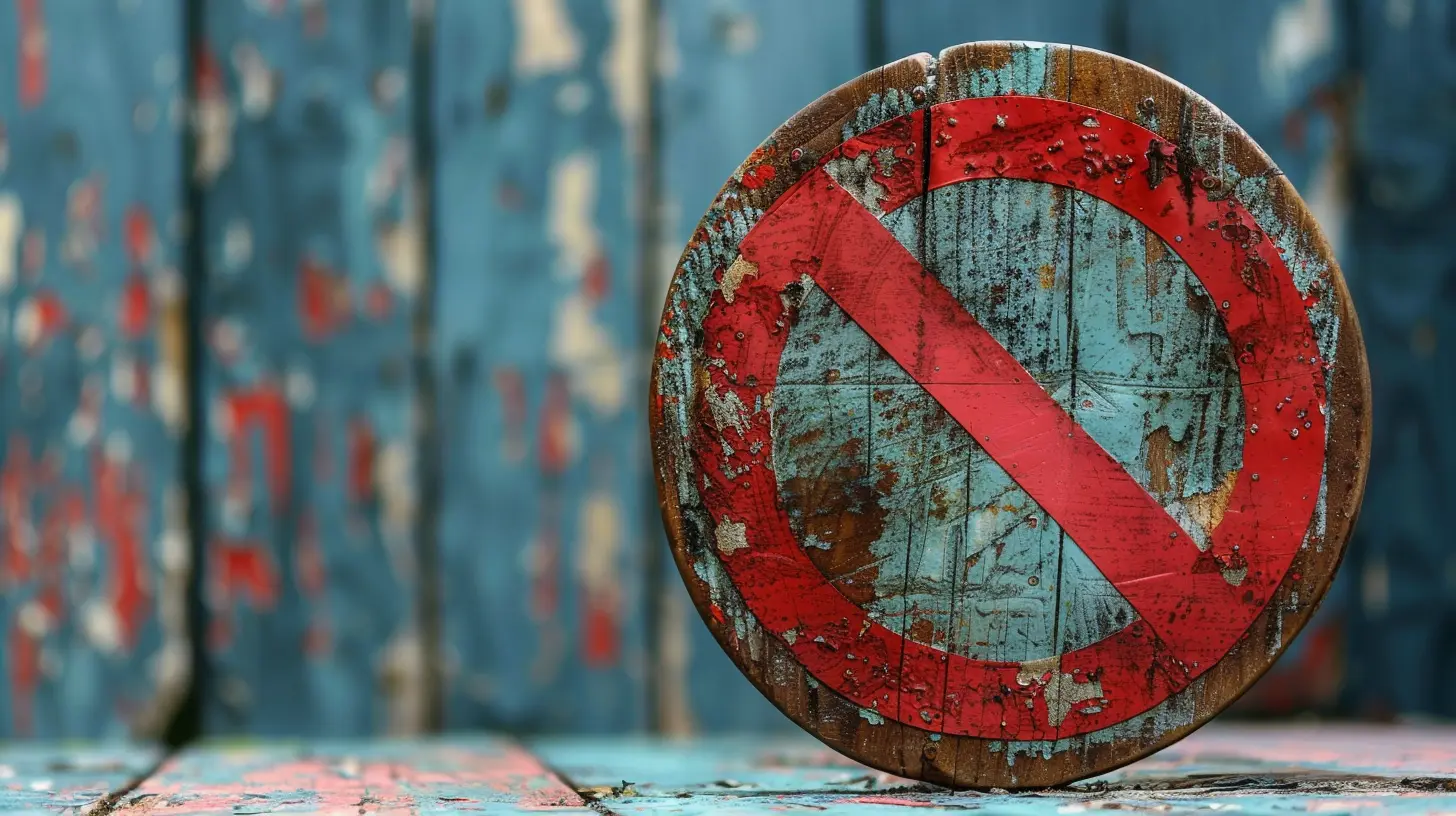28 December 2024
Let’s face it: saying “no” can feel really uncomfortable. Whether it’s turning down a friend, a family member, or a colleague, we often find ourselves in a tight spot. The word “no” carries a certain weight, doesn’t it? But here’s the truth—while saying no might feel like you’re letting someone down, it’s actually one of the kindest things you can do for yourself.
Think of boundaries as the invisible lines that protect your time, energy, and well-being. Without them, life becomes a whirlwind of overcommitments and burnout. So, if you’ve ever found yourself nodding "yes" when your heart was screaming "no," this guide is for you.
Let’s dive into the art of saying no and how it can help you establish healthier boundaries, one “no” at a time. 
Why Saying No Feels So Hard
Honestly, why is it so hard to utter a two-letter word? Well, it’s not just you—there are several reasons why saying no feels like a Herculean task.1. Fear of Disapproval
Let’s be real—nobody likes to be the bad guy. We’re wired to want acceptance and approval, especially from people we care about. Saying no can sometimes feel like you’re risking a relationship or earning a reputation for being rude or selfish.But guess what? People who truly respect and care for you will value your honesty, not just your blind compliance.
2. The Need to Please
Raise your hand if you’re a people-pleaser (don’t worry—you’re not alone). Saying yes might feel like the “nicer” option in the moment, but it often comes at a personal cost. Over time, constantly saying yes can lead to resentment—toward others and even yourself.3. Cultural Conditioning
For many of us, saying no goes against our upbringing. Maybe you were taught that being agreeable is a sign of strength or that declining an invitation is flat-out rude. These cultural influences can stick with us well into adulthood.
Why Boundaries Are Non-Negotiable
Let’s flip the script for a second. Instead of thinking of boundaries as restrictive walls, think of them as a protective bubble—a space where your mental, emotional, and physical health are prioritized.Boundaries are about respect, not rejection. They’re a way of saying to others, “Hey, this is what I need to show up as my best self.” And, believe it or not, boundaries don’t just benefit you—they nurture healthier relationships, too.
Imagine trying to pour water from an empty pitcher. You can’t, right? Similarly, you can’t give your best to others if you’re constantly running on empty. Saying no is how you refill that pitcher. 
The Benefits of Saying No
What’s on the other side of that uncomfortable “no”? Plenty! Here’s why learning to say no might just change your life:- More Time for Yourself – When you stop overcommitting, you open up opportunities to focus on what truly matters to you.
- Reduced Stress – Saying no can minimize feelings of overwhelm and burnout.
- Improved Relationships – Honest communication helps both parties understand each other better.
- Increased Confidence – Setting boundaries boosts self-esteem and helps you operate from a place of self-worth.
Doesn’t that sound good? 
Practical Tips for Saying No
OK, so you’re sold on the idea of saying no. But how do you actually do it without feeling like you’re burning bridges? Don’t worry, I’ve got your back.1. Pause Before You Respond
Ever been caught off guard and said yes before you even realized it? You’re not alone. If someone asks for your help, it’s OK to take a moment before answering. Say something like, “Let me get back to you,” or “I’ll need to check my schedule.” This gives you time to consider whether it’s a yes or a no.2. Be Polite but Firm
Saying no doesn’t mean you need to be harsh. You can decline while still being kind. For example, instead of saying, “I don’t have time for this,” try, “I really wish I could help, but I’m swamped right now.”Notice how it’s soft yet leaves no room for negotiation?
3. Use “I” Statements
Take ownership of your decision by framing your response with “I” statements. These sound less accusatory and keep the focus on your needs. For example:- “I’m not able to take on any more projects right now.”
- “I need some time to focus on myself this weekend.”
4. Offer an Alternative (Only If You Want To)
If you feel bad about saying no, you can always suggest an alternative—but only if it aligns with your boundaries. For instance, if a friend invites you to an event, you could say, “I can’t make it, but how about we grab coffee next week instead?”5. Practice Makes Perfect
Saying no might feel awkward at first, but like any new skill, it gets easier with practice. Start small—decline something low-stakes, and build from there.Situations Where Saying No Is Essential
There are certain red-flag situations where saying no should be your go-to move. Here are a few examples to watch out for:1. When It’s Against Your Values
If something feels wrong or goes against your core beliefs, it’s time to draw the line.2. When It’s Taking Too Much of Your Energy
If you’re already overstretched, adding one more thing to your plate isn’t going to help anyone.3. When It’s Manipulative
If someone is trying to guilt-trip or pressure you, step back and re-evaluate. Your boundaries shouldn’t be up for debate.Common Myths About Saying No
Let’s bust a few myths that might be holding you back:Myth #1: “Saying No Is Selfish”
Truth: Taking care of yourself isn’t selfish—it’s necessary. A healthy you benefits everyone around you.Myth #2: “People Will Hate Me for Saying No”
Truth: Real relationships thrive on honesty. Anyone who gets offended by your boundaries probably doesn’t respect them in the first place.Myth #3: “I’m Obligated to Say Yes to Family”
Truth: Family dynamics can be tricky, but you still deserve to protect your peace. Saying no to family isn’t betrayal—it’s self-preservation.Positive Ways to Frame Your No
Here are some phrases to help you say no without sounding harsh:- “I appreciate the opportunity, but I’ll have to pass.”
- “I’m flattered you thought of me, but I can’t commit to this right now.”
- “That sounds amazing, but it’s not something I can take on right now.”
- “Thanks for considering me, but I’ll have to decline.”
See? Saying no doesn’t have to feel like the end of the world.
Final Thoughts: Embracing the Power of No
Saying no is not about shutting people out—it’s about letting yourself in. Establishing healthy boundaries is one of the most compassionate things you can do for your mental and emotional well-being.Remember, every time you say no to something that drains you, you’re saying YES to yourself. So, let go of the guilt, practice your “no” with confidence, and watch as your life becomes more balanced, joyful, and fulfilling.
You’ve got this!










Ronan Barlow
Empower yourself by practicing assertive boundary-setting.
February 4, 2025 at 4:33 PM